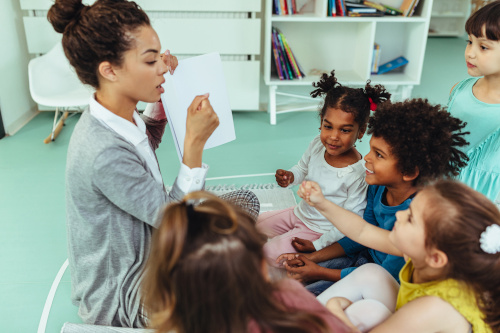Social-emotional learning (SEL) is an approach to learning that focuses on the social and emotional skills necessary for students to succeed in school and life. SEL is not new, but it has recently gained momentum as more educators recognize the importance of teaching social and emotional skills.
With this new approach, schools focus on developing students’ social and emotional skills to help them succeed academically and socially. Emotional intelligence is the capacity to identify and manage one’s emotions and those of others, use emotional information in thinking, and understand the emotional significance of events.
What are the Benefits of SEL?
SEL is a process that helps people manage their emotions, develop social skills, and build relationships. It’s a way to help children and adults become more aware of the world around them. It also helps them develop better relationships with others. SEL is a process that helps students develop critical social and emotional skills. The goal is to help children become more successful in school and life. The benefits of SEL are numerous. For one, it helps children develop self-awareness, which can be an essential aspect of success. Secondly, it can help reduce bullying behavior because children learn how to identify the emotions of others and how to manage their own emotions. Finally, it has been shown to reduce aggression in students and increase academic achievement. SEL is not just about overcoming challenges or dealing with difficult situations. It’s about developing the skills necessary for success in life.
How to Implement SEL in Schools?
SEL is a type of education that focuses on children’s social and emotional development. It helps students develop skills in empathy, self-awareness, self-management, interpersonal relationships, responsible decision-making, and the ability to control impulses. SEL aims to foster a healthy school climate by providing opportunities for all students to learn about their emotions and how they affect themselves and others. There are many ways to implement SEL in schools, but it is important to remember that this must be done in a meaningful and effective way for the students. SEL strategies are a vital part of a teacher’s toolkit. They help students develop the skills they need to succeed in the classroom and beyond.
The three most common SEL strategies teachers use are:
1) Teaching self-awareness: Students learn to recognize their own feelings, thoughts, and behaviors. They also learn how these affect others and themselves.
2) Teaching social awareness: Students learn about different cultures, groups, and relationships between people.
3) Teaching responsible decision-making: Students learn how to make decisions that will result in positive outcomes for themselves and others.
Teaching students to control their behavior and emotions is a relatively new one for teachers to consider. However, changes in family dynamics, the rise of social media, and increased technology use have necessitated a shift. Teachers should set clear goals for students, provide feedback on work, and maintain a positive classroom environment to encourage self-regulation skills.
The Importance of Teaching Students Social-Emotional Skills
The importance of teaching students social and emotional skills is not to be underestimated. It is challenging to know how much these skills will affect a student’s life, but it is clear that they have the potential to make a huge impact. Students developing social and emotional skills are more likely to succeed in school and their future careers. They are more likely to have better relationships with their peers, teachers, and parents. They are also less likely to experience mental health conditions like anxiety or depression.
As the world becomes more connected and technology advances, we are seeing a shift in how children are raised. This change has led to an increase in mental health issues in children. Teaching social-emotional skills can help children develop these skills and lead them to be more successful in life. Social-emotional skills are essential for every child to learn, and they can be taught through everyday interactions with other people, such as teachers, parents, or even peers. These skills include self-awareness, self-management, social awareness, and relationship management.
Related:
What SEL teaches us about safety
Teachers can’t keep up with the need for SEL

